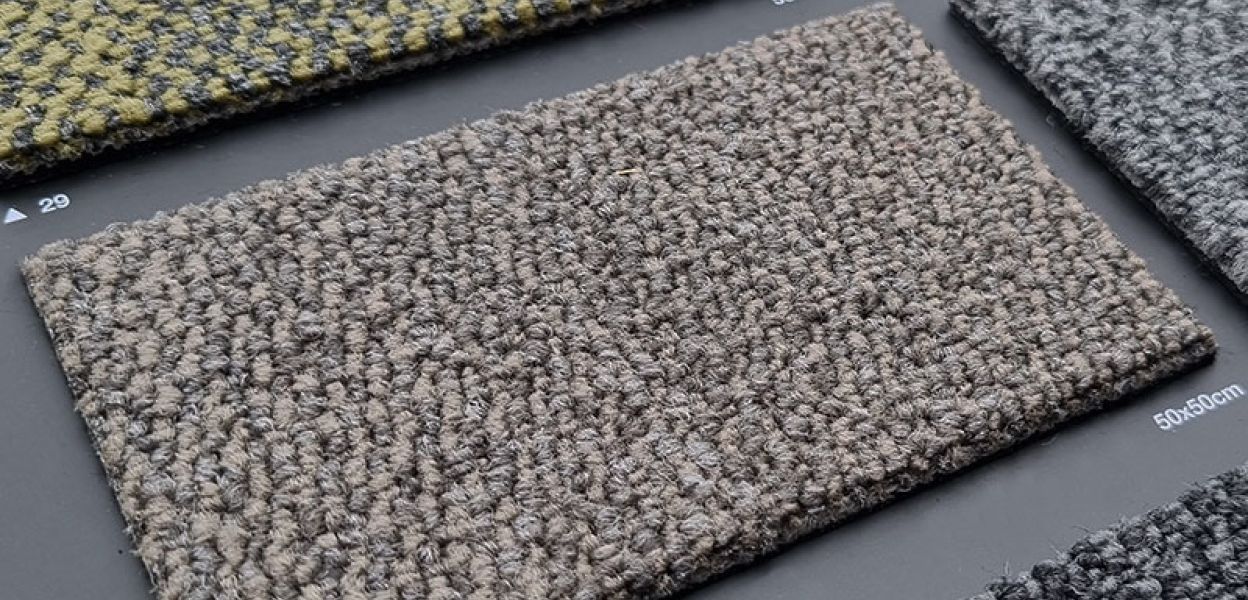Standards and Certifications for Carpet Tiles

Standards, Certifications, and Properties of Carpet Tiles
1. Standards and Certifications for Carpet Tiles
Technical Standards
Carpet tiles should meet a range of technical standards to ensure their quality and safety. Key standards include:
- EN 1307: Specifies requirements for carpet tile classification, including abrasion resistance, stain resistance, and shape stability. This standard ensures that tiles are suitable for various usage environments.
- ISO 9001: Certification of the quality management system that guarantees the carpet tile production process complies with international quality standards.
- ISO 14001: Relates to the environmental management system, ensuring that carpet tile production minimizes environmental impact.
Environmental Certifications
Environmental certifications confirm that carpet tiles are produced with respect for the environment. Key certifications include:
- Greenguard: Certifies low chemical emissions, which improves indoor air quality.
- Cradle to Cradle: Assesses the product's lifecycle in terms of recycling and sustainability, promoting the use of renewable materials and minimizing environmental impact.
2. Key Technical Parameters of Carpet Tiles
Fiber Thickness and Density
Impact on Comfort and Durability
The thickness and density of carpet tile fibers are crucial for user comfort and material durability.
- Fiber Thickness: Thicker tiles provide better cushioning and comfort. Typical carpet tile thickness ranges from 5 mm to 10 mm.
- Fiber Density: Measured in grams per square meter (g/m²), higher density means better resistance to loads and reduced surface wear. Typical density ranges from 500 g/m² to 1000 g/m².
Standard vs. Luxury Thicknesses
Standard tiles are thinner and more economical, while luxury tiles offer higher comfort and better durability.
Wear and Load Resistance
Tests and Classifications
Carpet tiles undergo wear and load tests to evaluate their durability and resistance to intensive use.
- Wear Tests: Determine how well the tiles withstand long-term use by measuring surface abrasion.
- Load Tests: Assess the resistance of tiles to various mechanical loads.
Applications in Various Environments
Tiles with higher wear and load resistance are suitable for high-traffic areas, while standard tiles are adequate for less demanding conditions.
3. Acoustic and Insulation Properties
Acoustic Insulation
Sound Absorption and Echo Reduction
Carpet tiles enhance room acoustics with their acoustic properties.
- Sound Absorption: Thicker and denser tiles better absorb sounds, which is beneficial in high-noise areas.
- Echo Reduction: Carpet tiles help reduce echo, improving acoustic comfort.
Comparison of Pile Types
Different pile types, such as loop pile, cut pile, and mixed pile, affect their acoustic properties. Loop pile provides better sound absorption, while cut pile offers greater acoustic comfort.
Thermal Insulation
Impact on Heat Retention
Carpet tiles provide an additional layer of insulation that helps maintain warmth in rooms.
- Heat Insulation: Carpet tiles can contribute to lower heating costs and improved thermal comfort.
- Heat Loss Reduction: Effectively reduce heat loss through the floor, which is beneficial in rooms with uninsulated foundations.
Benefits for Heating Costs
Carpet tiles help reduce the need for additional heating, leading to energy savings.
4. FAQ
What standards should carpet tiles meet?
Carpet tiles should meet the EN 1307 standard, which specifies classification requirements, abrasion resistance, stain resistance, and shape stability. Additionally, for environmental quality confirmation, look for certifications such as Greenguard or Cradle to Cradle, which confirm low chemical emissions and a sustainable product lifecycle.
What technical parameters are most important when choosing carpet tiles?
Key technical parameters of carpet tiles include fiber thickness and fiber density, which impact comfort and durability. Thicker and denser tiles provide better cushioning and resistance to loads and abrasion. Additionally, wear and stain resistance tests are important as they determine how well tiles handle everyday use and maintenance.
How do carpet tiles affect room acoustics?
Carpet tiles improve room acoustics through their acoustic properties, such as sound absorption and echo reduction. Thicker tiles and those with the right pile type, such as loop pile or cut pile, more effectively reduce noise and echoes, enhancing acoustic comfort in spaces like offices and conference rooms.
Are carpet tiles eco-friendly?
Yes, many carpet tiles have environmental certifications such as Greenguard or Cradle to Cradle, which confirm low chemical emissions and a sustainable product lifecycle. Additionally, carpet tiles can be made from recycled materials and are often easy to recycle after their usefulness, contributing to environmental protection.
.webp)
Comments